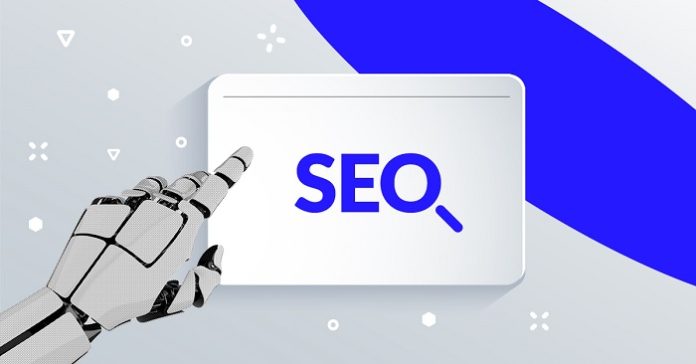As many of us know, artificial intelligence is a very hot topic right now. Since ChatGPT was first launched, people have been looking for ways to integrate it into their operations. One way to do that is by incorporating it into your SEO strategies for better results.
How exactly?
There are a lot of ways to actually achieve that. In this article, we will explore this and provide a couple of things to boot to level up your SEO strategies.
What is AI for SEO?
First off, SEO is highly technical—that is pretty much a given.
The way that AI works for SEO is that it is used to improve your website’s overall performance and search engine ranking. This is achieved by leveraging machine learning and natural language processing (NLP) to drive up your site’s visibility, and generate more organic traffic, to name a few.
Traditionally, a lot of the process that goes into doing this is done manually. But, thanks to this smart tool and other high-powered tools, this automates some of the time-consuming tasks and streamlines the overall flow.
Of course, it is important to stress that it does not mean you can replace your SEO specialist. One, realistically, this particular tool has not evolved to that level yet. Two, you cannot replace the compounding expertise of a specialist with a program that relies on data and information written by the very experts themselves.
So, the best way to go about it is to consider AI as a smart assistant.
Why use AI for SEO strategies?
With that said, why should you use ChatGPT for SEO or any smart tool for that matter?
Short answer: You have a lot to gain when you integrate it into your SEO strategies.
Plus, if you do not incorporate it, you potentially lose out on opportunities for growth and also lose against your competitors.
But, when you do choose to incorporate it, then you gain so many benefits aside from improving your overall website performance.
Improve Efficiency
As a smart assistant, it can do a host of tasks, such as:
- Keywords Research
- Content Creation
- Technical Optimization
Basically, instead of putting so much effort into doing these manually, you can opt to do the hassle-free and faster way. Moreover, this opens you up to focus on more important details when you apply your SEO strategies.
Also read: Artificial Intelligence Statistics Enterprises Should Know
It is worth mentioning, that if you are a marketing agency, then this enables you to provide consistent high-quality SEO services and opens you to opportunities like taking in more clients.
Gain Important Insights
As a smart program, it can go through large amounts of data and condense these into key insights. More specifically, you can use it to identify upcoming trends, spot opportunities to rank up, and make better decisions about the SEO strategies that you are applying.
Personalize User Experience
In relation to getting better insights, you also get to understand your audience and provide them with a more personalized experience.
This is especially a big boon since one of the crucial details to increasing traffic to your website is what you have to offer your audience. To do this, you need to understand them, relate to them, and actually provide valuable information that is relevant to their needs and interests.
Stay Ahead of Your Competition
Of course, opting to integrate it into your SEO strategies gives a competitive edge as well.
Google always has algorithm updates that sometimes flip everyone on their heads. To stay ahead of this, it is important to understand and spot trends as early as possible and apply them to your strategy.
This is where your “smart assistant” enters the picture. With its capabilities, it can sift through large amounts of data and pinpoint the trends you need to keep a close eye on.
Improve Search Engine Ranking
Last, but not least, all your efforts to improve your website’s performance boil down to climbing up the search engine ranking—your ultimate goal.
How to use AI in your SEO strategies?
With that said, how exactly do you integrate this smart tool into your SEO strategies? We listed below a couple of them that you can adopt right now.
Side note: Given the speed of today’s innovation, AI’s applications for SEO may potentially expand in the not-so-far future.
Onsite Optimization
First on our list of ways to use AI in your SEO strategies is onsite optimization. Basically, the focus here is to improve your website to provide your visitors with a better user experience.
There are a couple of ways to do that: By making sure they can easily go from your home page to page A in fewer clicks as much as possible. And, use it as a tool to spot technical issues that are present in the site.
Here are a couple of tools that you can use for this:
- Jasper
- MarketMuse
- Frase
- Surfer SEO
Here are specific ways you can use it for onsite optimization.
- Keyword Research
- Content Creation
- Technical Optimization
- Personalization
- Predictive Analytics
Content Creation
Another way to use this particular smart tool in your SEO strategies is through content creation.
There are several reasons why it is a great help:
- It can generate content a lot faster than the typical content writer.
- It can generate articles that are relevant and personalized to your audience’s interests and needs.
- It can generate content that is accurate and grammatically error-free.
Of course, while it may be a convenient alternative to hiring a content writer, here are a couple of things you need to consider:
- Most AI tools rely on the data sets that are provided to them making them highly susceptible to plagiarism.
- It is highly liable to biases since it is influenced by the data that was provided.
- While it is error-free, the sentence structure of most automated content generators can be clunky.
- There is a possibility that Google’s future algorithm will prioritize human-generated content.
Here are a couple of ways you can use it aside from solely generating content:
- Use it for research.
- Use generated content as a starting point and inspiration only.
- Use Bard for keyword research and People Also Ask questions.
Content Optimization
Aside from being used to generate content, you can also use AI to optimize it. Here are a couple of ways to do this:
- Use smart tools (like Bard, Writesonic, and other alternatives that are connected to the Internet) as a plagiarism checker.
- Use it to check if the content you have written is error-free and easy to understand.
- Use it to spot areas of your content that need improvement.
Keyword Research
As mentioned earlier, keyword research is one of the many ways to integrate AI into your SEO strategies.
Here are a couple of ways to do exactly that.
- Use keyword tools (like Semrush Keyword Magic Tool, Ahrefs Keywords Explorer, and Google Keyword Planner) to identify relevant keywords, analyze the competition for each one and the search volume, and also provide long-tail variations.
- Use tools with good NLP capabilities to help understand user queries and provide the most relevant keywords based on these, your intent, and the topic of your content.
- Use machine learning (ML) algorithms to identify prevalent patterns and trends to determine the topics and keywords that are the most relevant at the moment.
Custom AI Build
Last, but not least, you can also choose to custom AI program.
One of the biggest boons for your SEO strategies when you integrate it this way is it is tailor-made to cater to your specific needs. Another reason why it is worth considering is that it can generate insights and execute other tasks that are angled to the context of your brand and audience.
Moreover, you can also create programs that are meant to analyze your website based on the following factors Experience, Expertise, Authoritativeness, and Trustworthiness (E-E-A-T), and also generate timely article ideas.
Here are a couple of ways to create a custom program: Create or Configure.
- You can “create” by having conversations with the GPT Builder. Here, you can train it without the need to code or set parameters.
- If you choose to “configure,” you need to enter specific details to set your parameters.
Conclusion
There is no denying that AI can change how you approach and apply your SEO strategies.
If you consider everything we have discussed here, it all boils down to it assisting you and enabling you to focus on the important aspects of your marketing efforts, like improving your strategies and positioning your brand to effectively leverage the present situation, upcoming trends, and opportunities.
That said, we do have last-minute reminders we want you to always keep in mind.
Dos
- Do manage your expectations.
- Do use it to save time.
- Do use it to test what works.
- Do use it as a starting point.
- Do use it to learn more about your audience.
Don’ts
- Don’t use it without a plan.
- Don’t forget to use other high-powered SEO tools.
- Don’t ignore your own expertise.
- Don’t use it with a set-it-and-forget-it approach.
- Don’t forget why you invest in SEO.


